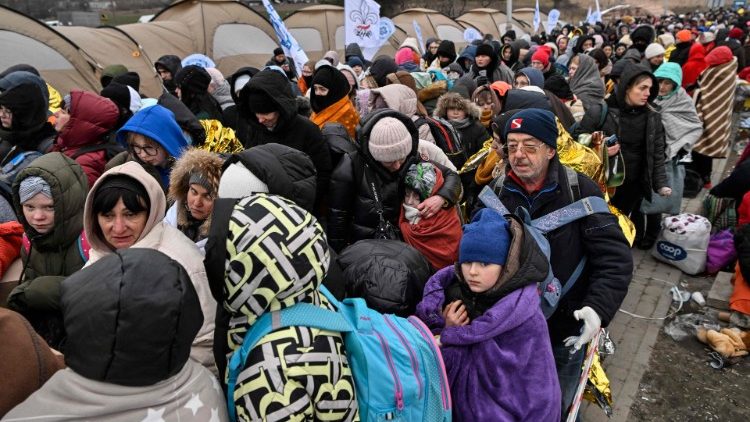Research & Studies


According to UNHCR, more than three and a half million refugees have fled Ukraine so far, and over 330,000 of them have arrived in Hungary. The governmental institutions, charity organizations and private citizens are working together to help those escaping the horrors of war. Nestled in the quaint town of Kőszeg in western Hungary, the Institute of Advanced Studies Kőszeg (iASK) was involved in many humanitarian activities to assist Ukrainian refugees. A team of permanent staff members, international researchers and scholars located in Hungary or scattered across the globe have made collective and individual efforts to provide financial and logistical support.
Members of the iASK international network have been involved in collecting and distributing food supplies, medicines and toiletries, clothes, toys, and other necessities in Hungary and throughout the EU as well as worldwide. Many of them collaborated with institutions dedicated to helping refugees, while others made donations. Some of them focused on providing support to charities dealing with vulnerable groups such as children with disabilities, while some found ways to help the most neglected victims of war such as abandoned pets and other animals. Those who could offer accommodation invited refugees in their private homes, and others volunteered at reception points such as Záhony in Hungary or Przemysl in Poland and helped Migration Aid to organize lodging in hostels or distribute the supplies collected in Hungary and abroad.
Foreign nationals who lived or studied in Ukraine before the outbreak of war also needed help and support. One of the iASK researchers was involved in helping the citizens of Ghana and many other refugees who came to Hungary from Ukraine. He assisted them to find their respective embassies or get in touch with the universities so that they could continue their education. He donated to the Ghana Students Association in Hungary to buy food and other provisions for students who arrived from Ukraine and arranged media coverage to raise awareness of the situation of Ukraine in Ghana.
Members of the iASK team located in major European cities like Budapest, Warsaw, Vienna, Munich, Helsinki and many others were involved in multiple humanitarian activities to help Ukrainian refugees. Our colleagues from Poland are involved in sending protective equipment and helping civil society organizations document war crimes in Ukraine. They emphasize the power of bottom-up initiatives and citizen networking.